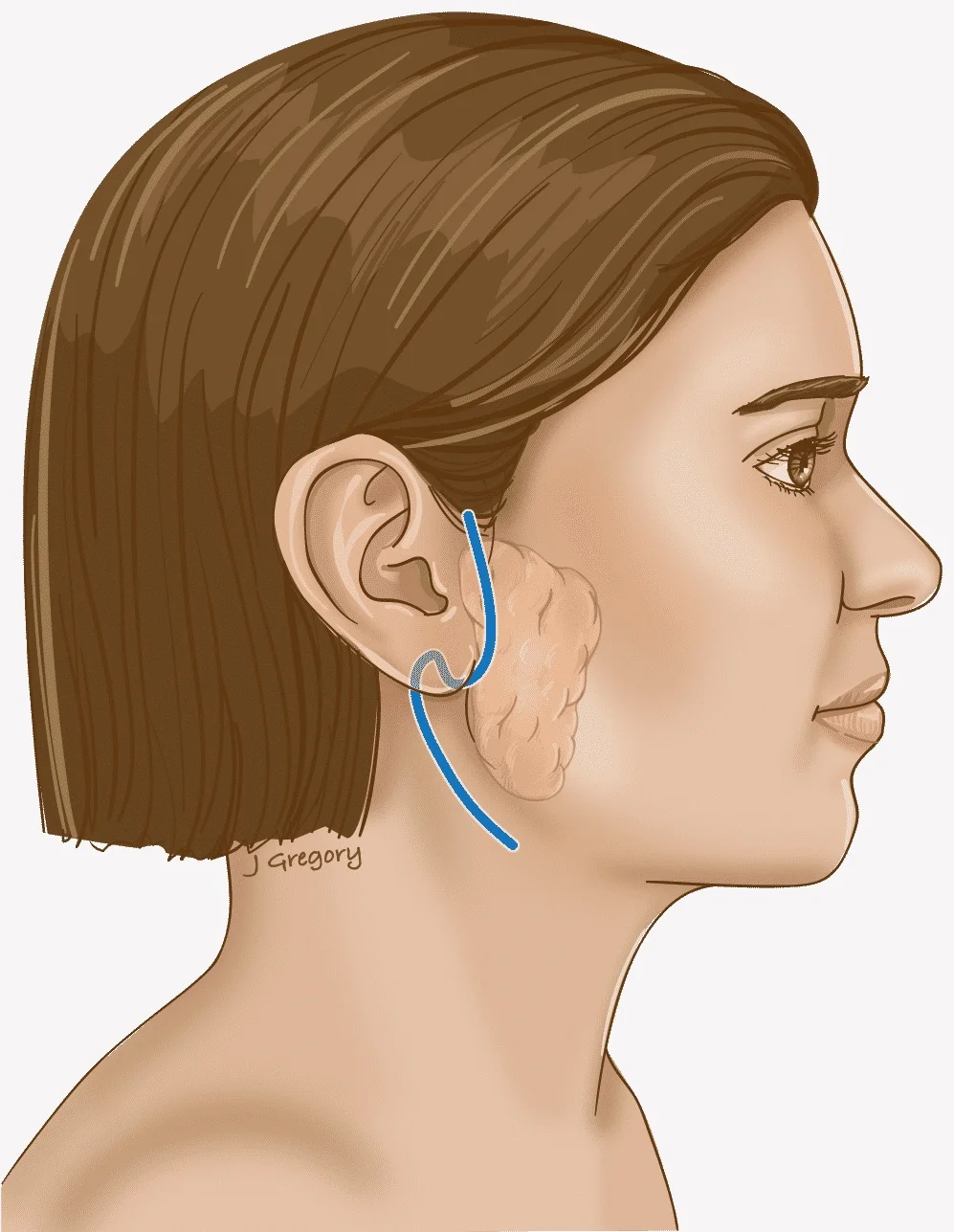
Parotidectomy is a surgical procedure that involves the removal of the parotid gland, which is the largest salivary gland located in front of the ear. The parotid gland produces saliva, which helps in the digestion of food.
How it is performed
Parotidectomy is a surgical procedure that is typically performed under general anesthesia. The procedure involves making an incision in front of the ear and along the jawline to expose the parotid gland.
Once the gland is exposed, the surgeon carefully separates it from the surrounding tissues, including the facial nerve that runs through the gland. This is done to avoid damage to the nerve and to preserve its function. If the surgery is being performed to remove a tumor, the surgeon will also remove the tumor along with the gland. After the gland has been removed, the surgeon will use sutures to close the incision. A small drainage tube may be inserted to remove any excess fluids from the surgical site.
The length of the procedure depends on the specific case and the extent of the surgery. It may take anywhere from a few hours to several hours. After the procedure, patients are typically monitored in a recovery room for a few hours before being discharged. They may need to stay in the hospital for a day or two if complications arise.
Why is the surgery done
Parotidectomy surgery is done for a variety of reasons, including:
- Tumor removal from the parotid gland
- Salivary gland stone removal: Sometimes, stones may form in the ducts of the parotid gland, leading to pain, swelling, and infection.
- Infection: In rare cases, the parotid gland may become infected, leading to inflammation and pain which will need to be treated through surgery
- Chronic inflammation: Some patients may develop chronic inflammation of the parotid gland, which can lead to recurrent swelling, pain, and other symptoms. In such cases, surgical removal of the gland may be necessary to relieve symptoms.
- Biopsy: In some cases, a small tissue sample (biopsy) may be required to diagnose a suspected parotid gland condition. Parotidectomy surgery may be performed to obtain this sample for testing.
What to expect post surgery
After a parotidectomy surgery, it is normal to experience some discomfort, swelling, and bruising in the face and neck. Pain medication and ice packs can help manage these symptoms. Here are some things you can expect after the surgery:
- Hospital stay: Most patients can go home the same day or the day after the surgery. However, in some cases, an overnight hospital stay may be required.
- Swelling and bruising: Swelling and bruising are common after parotidectomy surgery and can last for several weeks. Ice packs can help reduce swelling, and over-the-counter pain medication can help manage discomfort.
- Numbness: Numbness in the face and neck is common after parotidectomy surgery and may last for several weeks to several months. This is usually temporary and should resolve over time.
- Drainage tube: In some cases, a small drainage tube may be inserted at the surgical site to remove excess fluids. The tube is usually removed within a few days after the surgery.
- Follow-up appointments: You will need to see your doctor for follow-up appointments to monitor your healing and ensure that there are no complications.
- Facial exercises: Your doctor may recommend facial exercises to help improve facial muscle strength and prevent long-term weakness or drooping.
- Diet and activity restrictions: Your doctor may recommend specific dietary and activity restrictions, such as avoiding strenuous activity and eating soft foods for a few days after the surgery.
Risks associated with the surgery
Like all surgical procedures, parotidectomy surgery carries some risks. Here are some potential risks and complications associated with parotidectomy surgery:
- Facial nerve damage
- Infection
- Bleeding
- Salivary fistula
- Facial numbness
